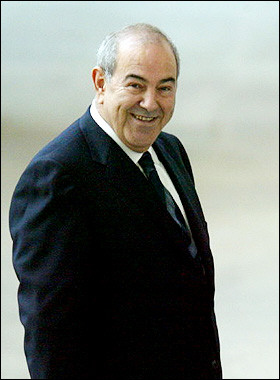Initially created as a way of keeping Saddam Hussein loyalists from running in elections after the 2003 US invasion, Iraq’s Justice and Accountability Commission (JAC) rose to considerable prominence and more than a little controversy early this year when they began banning, en masse, candidates from the Iraqiya bloc.
B ut following a surprisingly strong showing from those Iraqiya candidates who weren’t banned, the bloc has found itself seizing control of the JAC as well as several other parliamentary committees as part of a power-sharing deal.
ut following a surprisingly strong showing from those Iraqiya candidates who weren’t banned, the bloc has found itself seizing control of the JAC as well as several other parliamentary committees as part of a power-sharing deal.
The JAC banned a number of top Iraqiya members, including Saleh al-Mutlaq, one of the party’s leadership, ahead of the vote and then issued a second round of bannings against winning Iraqiya candidates after the vote. At the time under the control of Ahmed Chalabi and his allies, the JAC claimed the power to ban people with very little oversight. Iraqiya is expected to reform the organization considerably, and will likely revoke many of the bannings.
After winning the largest plurality in the March vote, Iraqiya nearly found itself in the opposition, but eventually came to terms with second place finisher State of Law to serve in a coalition. So far Iraqiya has secured the parliamentary speakership and a Vice Presidency, and the bloc claims to have made a deal to control the Defense Ministry, though this has yet to be confirmed.


